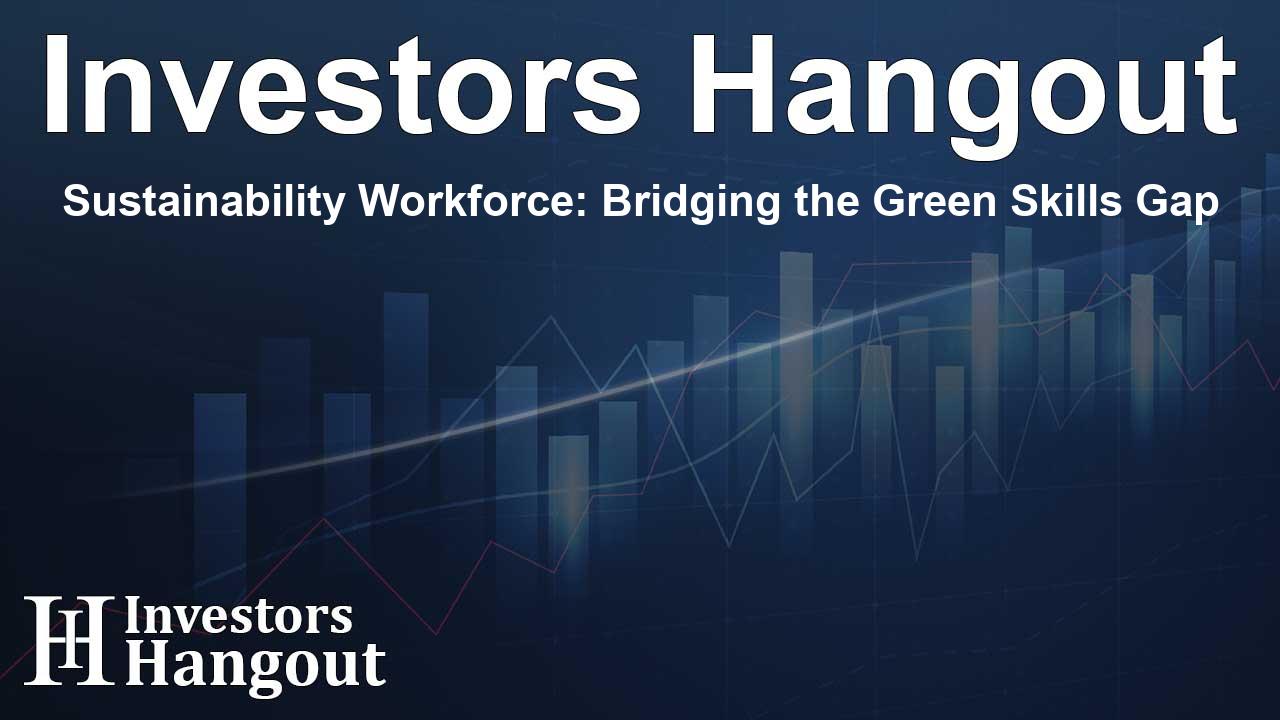Sustainability Workforce: Bridging the Green Skills Gap

Unlocking the Future of Sustainability Hiring
Organizations are increasingly aware of the pressing climate crisis, resulting in a growing demand for talented individuals equipped with the right skills to propel sustainability initiatives. However, a recent study by climate advisory firm OnePointFive unveils a critical challenge that many companies face: there is a notable deficit in the availability of skilled professionals who can contribute meaningfully to sustainability efforts.
The Skills Shortage Continues
OnePointFive's research indicates that businesses are struggling to find candidates who possess the dual expertise needed in both industry and green skills. Many hiring managers are in search of what is colloquially known as a "Sustainability Unicorn"—an individual who embodies a wealth of experience along with essential environmental knowledge. Yet, the reality is that this type of candidate is rare, leading to unfulfilled roles that are vital for achieving Net Zero commitments.
Reevaluating Requirements
As companies strive to meet their sustainability goals, it becomes apparent that a new approach is vital. Instead of narrowing their search to elusive candidates, organizations need to rethink their hiring strategies. This involves considering how to effectively upskill existing employees and integrate sustainability into the culture of their teams.
Emphasizing Upskilling
OnePointFive has released a comprehensive playbook titled Forget the Sustainability Unicorn: How to Upskill a Climate Workforce. This guide highlights the importance of cultivating green competencies through continued education and training, emphasizing that organizations should look internally to grow talent rather than exclusively seeking external candidates.
Essential Green Skills
The study revealed that newly hired sustainability professionals consider technical skills crucial to their roles. Key areas such as carbon accounting and reporting, supply chain management, and data modeling have become intrinsic to the success of sustainability initiatives. Interestingly, many individuals feel that these skills are significantly more important in those roles than they initially perceived before embarking on their careers.
Challenging the Status Quo
Neil Yeoh, the visionary Founder and CEO of OnePointFive, articulated the conundrum faced by employers: "The paradox of needing green skills to get a climate job and needing a climate job to gain those skills creates a major roadblock for companies aiming for Net Zero goals." He highlights the necessity of changing hiring practices and emphasizes that innovative upskilling can foster employee growth while achieving corporate objectives.
Join the Dialogue at Climate Week
OnePointFive invites all interested parties to participate in events during New York Climate Week. Participants will have the chance to delve into the study's findings and hear from industry leaders like LinkedIn and other pioneering organizations. These discussions are essential for shaping the future of sustainability and will illuminate the pathways to greater collaboration and skill development.
Methodology Behind the Research
The insights derived from OnePointFive's research stem from over 30 detailed expert interviews, feedback from more than 230 climate job seekers, and the training of over 3,500 climate professionals, including graduates of the OnePointFive Academy. This robust methodology underpins the comprehensive approach toward fostering green skills in the workforce.
About OnePointFive
OnePointFive stands at the forefront of climate advisement, advocating for actionable skills and solutions to enhance organizational strategies. Committed to empowering the workforce for a sustainable future, OnePointFive combines practical training with real-world competencies to create a ripple effect of positive environmental change.
Frequently Asked Questions
What is the main focus of OnePointFive's research?
The research investigates the skills gap in sustainability hiring, emphasizing the need for effective upskilling to meet industry demands.
Why are "Sustainability Unicorns" hard to find?
This type of candidate is rare because they need extensive experience coupled with specialized green skills, making them difficult to recruit.
How does OnePointFive propose companies resolve their hiring challenges?
OnePointFive recommends that companies focus on upskilling current employees and embedding sustainability practices within their teams.
What key skills were highlighted as crucial for sustainability professionals?
Skills such as carbon accounting, supply chain management, and data modeling are increasingly essential for sustainability success.
How can individuals get involved with OnePointFive's initiatives?
Individuals can participate in discussions at events during Climate Week and access training through the OnePointFive Academy.
About Investors Hangout
Investors Hangout is a leading online stock forum for financial discussion and learning, offering a wide range of free tools and resources. It draws in traders of all levels, who exchange market knowledge, investigate trading tactics, and keep an eye on industry developments in real time. Featuring financial articles, stock message boards, quotes, charts, company profiles, and live news updates. Through cooperative learning and a wealth of informational resources, it helps users from novices creating their first portfolios to experts honing their techniques. Join Investors Hangout today: https://investorshangout.com/
Disclaimer: The content of this article is solely for general informational purposes only; it does not represent legal, financial, or investment advice. Investors Hangout does not offer financial advice; the author is not a licensed financial advisor. Consult a qualified advisor before making any financial or investment decisions based on this article. The author's interpretation of publicly available data shapes the opinions presented here; as a result, they should not be taken as advice to purchase, sell, or hold any securities mentioned or any other investments. The author does not guarantee the accuracy, completeness, or timeliness of any material, providing it "as is." Information and market conditions may change; past performance is not indicative of future outcomes. If any of the material offered here is inaccurate, please contact us for corrections.